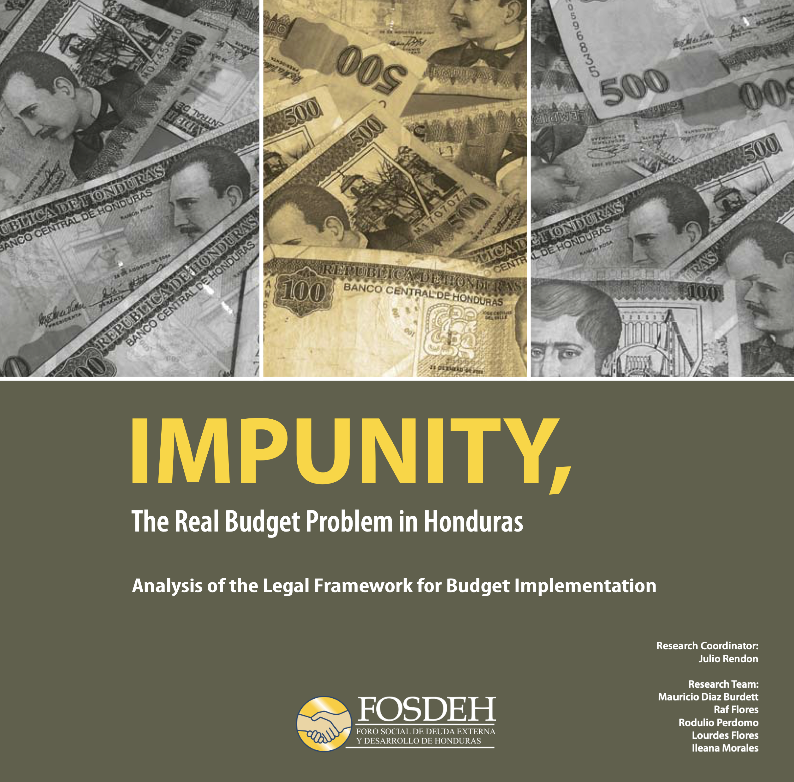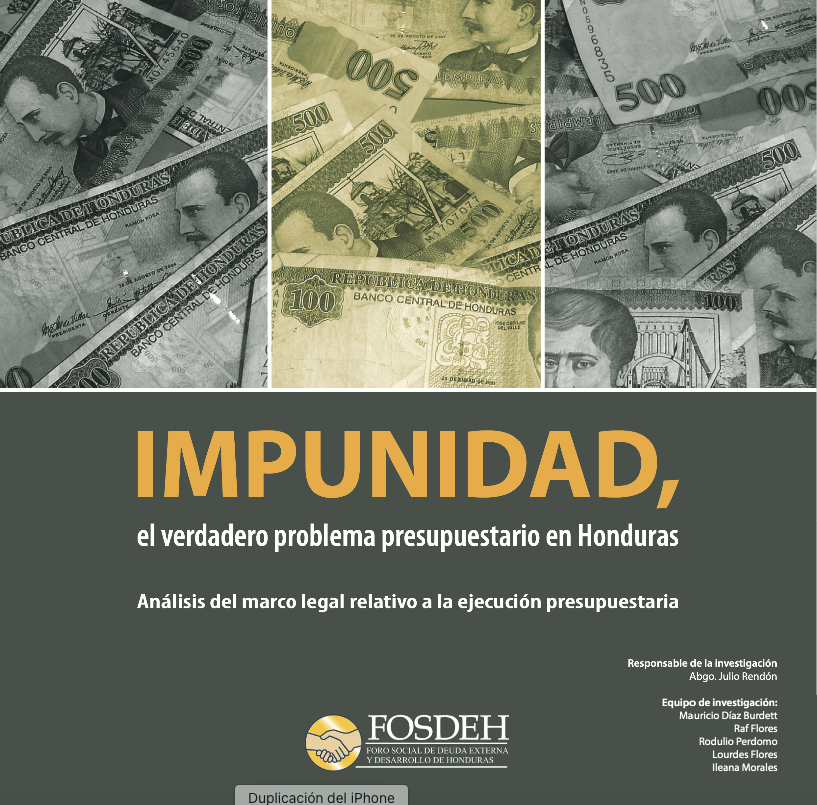
IMPUNITY, The Real Budget Problem in Honduras Analysis of the Legal Framework for Budget Implementation
This report, published by FOSDEH with the support of USAID, offers a comprehensive legal and institutional analysis of Honduras’ public budgeting system, framing impunity as the central problem undermining fiscal governance. It identifies systemic failures in the application, oversight, and enforcement of laws that regulate the formulation and execution of the national budget.
The report critically examines Honduras’ constitutional and legal framework—particularly the Organic Budget Law (LOP), Procurement Law (LCE), and the roles of oversight bodies such as the Ministry of Finance and the Superior Accounting Tribunal (TSC). It concludes that while the legal instruments are largely sound, noncompliance, weak enforcement, and widespread discretion in public spending render these laws ineffective.
Key findings include:
-
Frequent violations of constitutional principles such as budget unity, the single treasury account, and budget specialization. These result in off-budget expenditures, misuse of public funds, and unchecked amendments.
-
Excessive and opaque use of budget amendments—with up to 40 modifications allowed per institution per year—has become the norm rather than the exception.
-
Public procurement practices are often circumvented, with rampant use of direct contracting, poor prequalification of suppliers, and contract awards without budgetary backing.
-
Internal and external control mechanisms are systematically weakened, and internal audit units lack independence, contributing to a near-total lack of accountability.
-
There is no functional oversight by Congress or active enforcement of sanctions by the TSC or judiciary. Legal violations, such as unauthorized expenditures or manipulations of financial data, rarely result in administrative, civil, or criminal penalties.
-
Institutional actors operate with broad discretion, often pursuing political and electoral interests through public budgets, undermining fiscal discipline and transparency.
-
Budget planning is largely detached from strategic development goals, with limited public participation and key budget-related documents often declared confidential.
-
Public debt continues to rise while core public services remain underfunded, creating a growing fiscal imbalance.
FOSDEH asserts that this structural impunity fosters a cycle of mismanagement, erosion of public trust, and deepening economic inequality. The report calls for urgent reforms, including:
-
Stronger enforcement of legal accountability for public officials.
-
A binding fiscal responsibility framework, possibly through a Budget Stabilization Law.
-
Enhanced independence and authority for internal audit units.
-
A more transparent, participatory budget process.
-
Coordinated oversight among the Ministry of Finance, Congress, and the TSC.
The core argument is clear: impunity is not just a governance issue—it is the root cause of fiscal dysfunction in Honduras, perpetuating inefficiency, public resource waste, and social injustice.
Otros libros por - Julio Rendón
Volver
 Impunidad, el verdadero problema presupuestario en Honduras. Análisis del marco legal relativo a la ejecución presupuestaria
Impunidad, el verdadero problema presupuestario en Honduras. Análisis del marco legal relativo a la ejecución presupuestaria